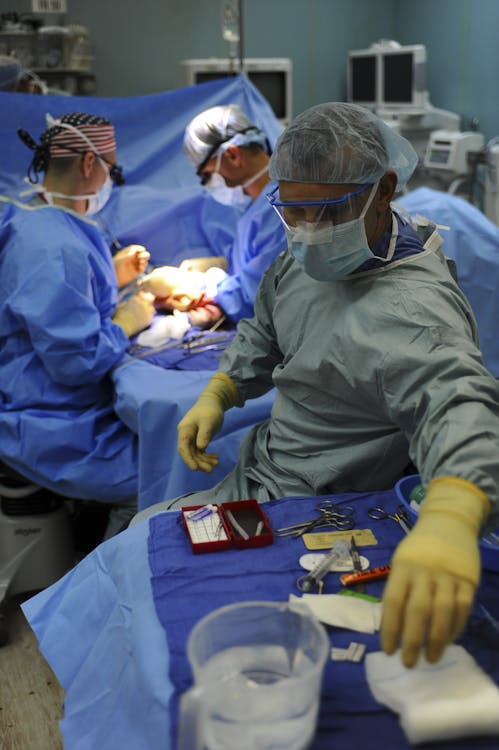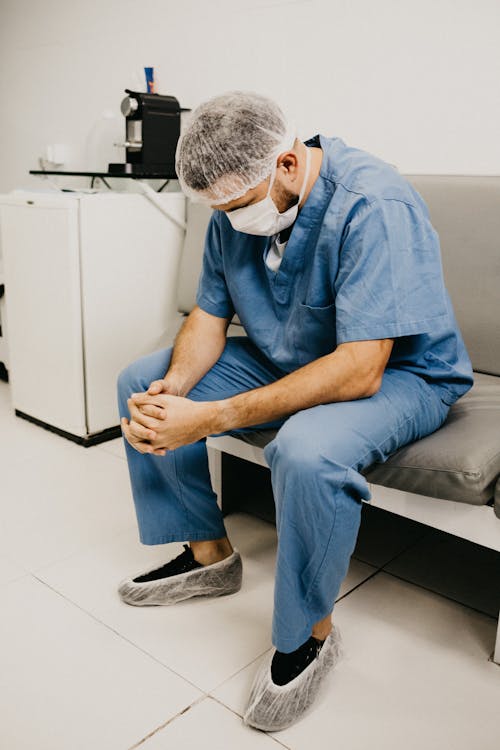Struggling with drug or alcohol addiction can be overwhelming. For many people, the first and most important step toward recovery is detoxification, often called detox. In Fort Lauderdale, hospital-based detox programs offer safe, medically supervised care for individuals ready to begin a new chapter in life.
In this article, we’ll cover everything you need to know about Fort Lauderdale hospital detox. From how it works, what to expect, who it helps, and how to find the right program for your needs — this guide is here to provide clear, honest answers in plain language.

What is Detox?
Detox is the process of removing harmful substances, like alcohol or drugs, from your body. It is often the first stage of addiction treatment.
When someone stops using a substance they have become dependent on, they can experience withdrawal symptoms. These can be mild or severe, and sometimes even dangerous. Detox helps manage these symptoms in a safe, controlled environment.
Why Choose a Hospital-Based Detox in Fort Lauderdale?
In Fort Lauderdale, some detox programs are offered in hospital settings, where you receive medical care around the clock. Here’s why a hospital detox might be the right choice:
- 24/7 medical supervision to keep you safe
- Licensed doctors and nurses on staff
- Help for people with other medical conditions
- Access to medications to ease withdrawal symptoms
- Support for mental health issues like anxiety or depression
Hospital detox is especially helpful if you’ve been using substances heavily or for a long time, or if you’ve tried to quit before and had bad withdrawals.

Common Substances That Require Detox
Not every addiction needs a hospital detox, but for many people, it’s the safest choice. Here are some substances that usually require medical detox:
1. Alcohol
Alcohol withdrawal can be serious. It may cause shaking, sweating, confusion, or even seizures. Hospital detox helps keep these symptoms under control.
2. Opioids (like heroin, oxycodone, or fentanyl)
Stopping opioids suddenly can cause nausea, pain, chills, and anxiety. While it’s rarely life-threatening, symptoms can be intense. Medical support makes it more manageable.
3. Benzodiazepines (like Xanax or Valium)
Withdrawing from these drugs can be dangerous. Symptoms may include panic attacks, insomnia, or seizures. Medical detox is often required.
4. Stimulants (like cocaine or meth)
These drugs may cause extreme fatigue, mood swings, or depression during detox. A hospital setting offers emotional and physical support.
What Happens During Hospital Detox?
Detox in a hospital is a carefully planned process. Here’s what you can usually expect:
1. Medical Assessment
Doctors will examine you and ask questions about your drug or alcohol use, health history, and any mental health concerns.
2. Stabilization
You’ll receive medications (if needed) and support to help reduce withdrawal symptoms. Nurses will monitor your heart rate, blood pressure, and other vital signs.
3. Emotional Support
Detox is not just about the body. Hospital staff may include counselors or therapists to help with stress and emotions during this time.
4. Preparation for Treatment
Detox is only the beginning. Before you leave, staff will help you plan the next steps — whether it’s rehab, counseling, or outpatient care.

How Long Does Detox Take?
Detox timelines can vary depending on the substance, how long you’ve been using it, and your overall health. Here’s a general idea:
- Alcohol: 3 to 7 days
- Opioids: 5 to 10 days
- Benzodiazepines: 7 to 14 days
- Stimulants: 3 to 7 days
Remember, detox is just the first step. Full recovery takes time, support, and ongoing treatment.
Who Should Consider Fort Lauderdale Hospital Detox?
You might want to consider hospital detox if:
- You’ve tried to quit and had bad withdrawal symptoms
- You use multiple substances (like alcohol and pills)
- You have mental health issues like depression or anxiety
- You’ve overdosed in the past
- You live in an unsafe or unsupportive environment
Even if you’re not sure you need hospital detox, speaking to a treatment professional can help you understand your options.
Benefits of Hospital Detox in Fort Lauderdale
Choosing detox in a Fort Lauderdale hospital comes with several benefits:
1. Safety First
Medical staff are trained to handle emergencies. If something goes wrong, help is already there.
2. Comfort
Hospitals offer medications and care that make detox less painful and stressful.
3. Privacy and Respect
You’ll be treated with dignity. Addiction is a health condition — not a moral failure.
4. Access to Other Services
Many hospital detox programs are connected to rehab centers, mental health services, and support groups.

What to Look for in a Fort Lauderdale Hospital Detox Program
Not all detox programs are the same. When searching for the right one, keep these tips in mind:
1. Licensed and Accredited
Make sure the hospital or detox center is properly licensed by the state and accredited by national health organizations.
2. Medical Staff On-Site
Doctors, nurses, and trained addiction specialists should be available 24/7.
3. Dual Diagnosis Treatment
If you have depression, PTSD, or anxiety, choose a detox center that can treat both addiction and mental health together.
4. Personalized Care Plans
Every person is different. A good program will adjust treatment based on your needs.
5. Aftercare Planning
Recovery doesn’t end after detox. Choose a program that helps plan your next steps — whether inpatient rehab, outpatient treatment, or counseling.
What About Cost?
Detox in a hospital may be covered by health insurance. Most plans, including Medicaid, Medicare, and private insurance, help pay for addiction treatment.
If you don’t have insurance, some hospitals offer sliding-scale fees, payment plans, or state-funded programs. You can also contact local nonprofits in Fort Lauderdale for support.
Are There Risks to Detoxing at Home?
Trying to detox at home without medical help can be dangerous. Risks include:
- Seizures
- Dehydration
- Severe anxiety or depression
- Relapse and overdose
In some cases, home detox can be deadly — especially for alcohol and benzodiazepines. It’s always safer to consult with a professional before trying to quit on your own.

Real-Life Story: Why Hospital Detox Matters
Sarah’s Story (Fictional for Privacy)
Sarah was 35 and had been drinking heavily for 10 years. She tried to quit on her own several times, but always ended up shaking, vomiting, and anxious. Once, she even had a seizure.
Finally, she went to a hospital detox center in Fort Lauderdale. The doctors gave her medication to reduce withdrawal symptoms. Nurses monitored her day and night. After five days, she felt stronger, both mentally and physically.
Her care team helped her enter a 30-day rehab program, followed by outpatient counseling. Today, Sarah has been sober for 18 months. She says hospital detox saved her life.
Frequently Asked Questions (FAQs)
Q: Is detox painful?
A: Detox can be uncomfortable, but hospital care helps ease the symptoms. You may receive medications to make the process safer and less stressful.
Q: Will people judge me if I go to detox?
A: No. Healthcare workers are trained to treat addiction with compassion and respect. You’re taking a brave step — and they’re there to support you.
Q: Can I visit my family during detox?
A: It depends on the hospital’s policy. Some allow visitors; others may restrict contact during the first few days.
Q: What happens after detox?
A: Detox is just the beginning. Most people continue treatment in rehab, therapy, or support groups to stay on track.
Q: Can I go back to work right after detox?
A: Some people return to work quickly, while others need more time. Talk to your care team about the best plan for you.
Final Thoughts: You’re Not Alone
If you or a loved one is facing addiction, remember this: Recovery is possible. Detox may seem scary, but it’s often the first step toward a better life. In Fort Lauderdale, hospital detox centers offer medical care, emotional support, and a safe place to begin healing.
No matter how long you’ve struggled, help is available — and hope is real. Choosing to detox is not a sign of weakness. It’s a sign of strength. More Article on gamesteller.

1 thought on “Fort Lauderdale Hospital Detox: A Complete Guide to Safe and Supportive Recovery”